Lenders Issue 2019: Chatting With the Debt Field’s Star Players
By The Editors November 12, 2019 9:00 am
reprints
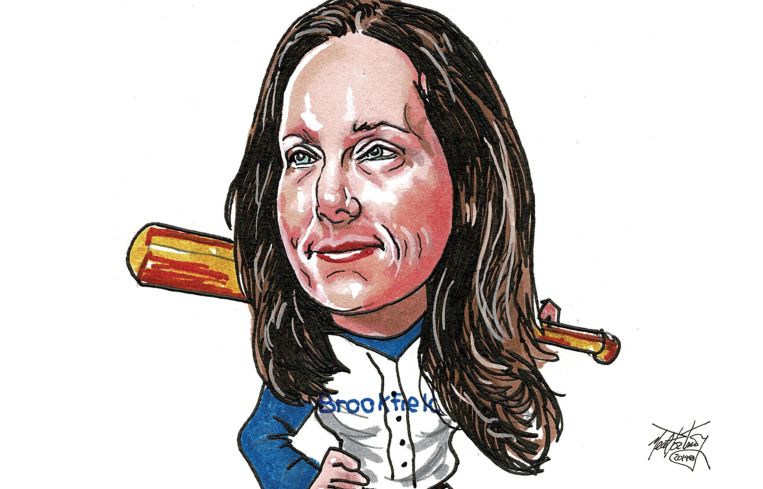

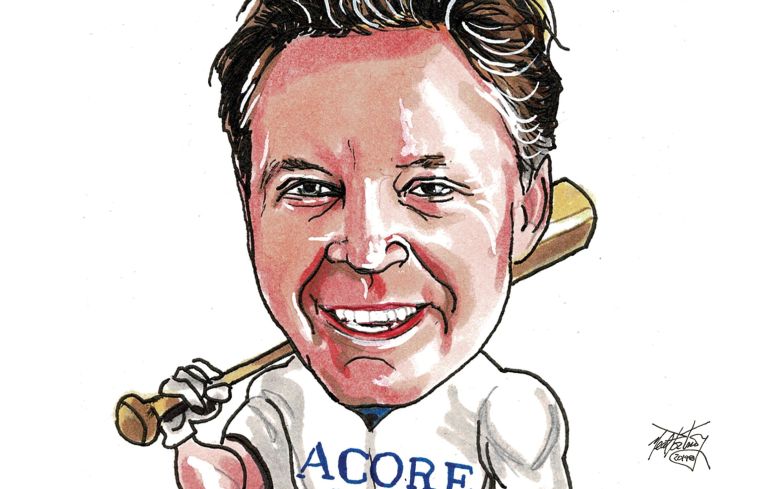

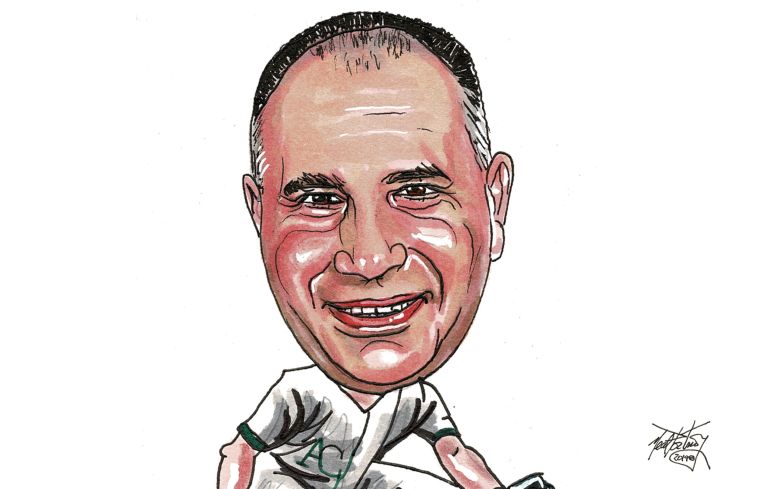
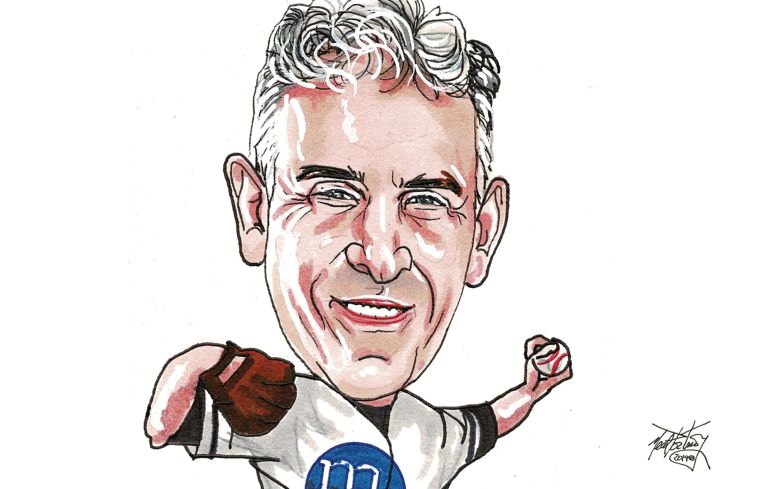
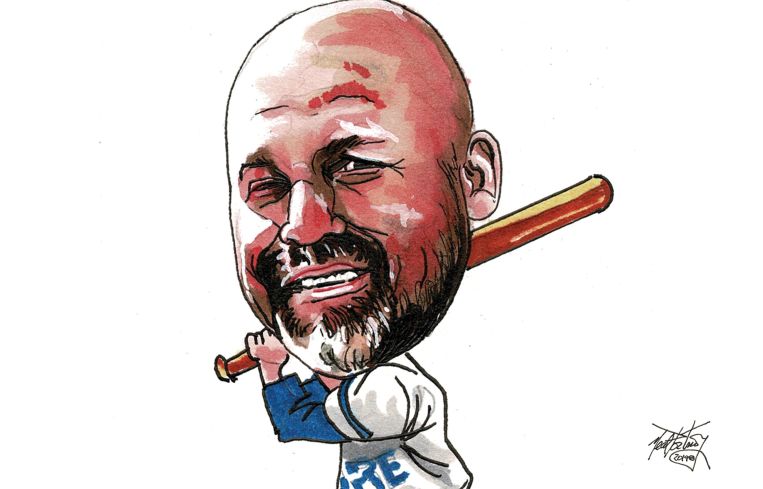
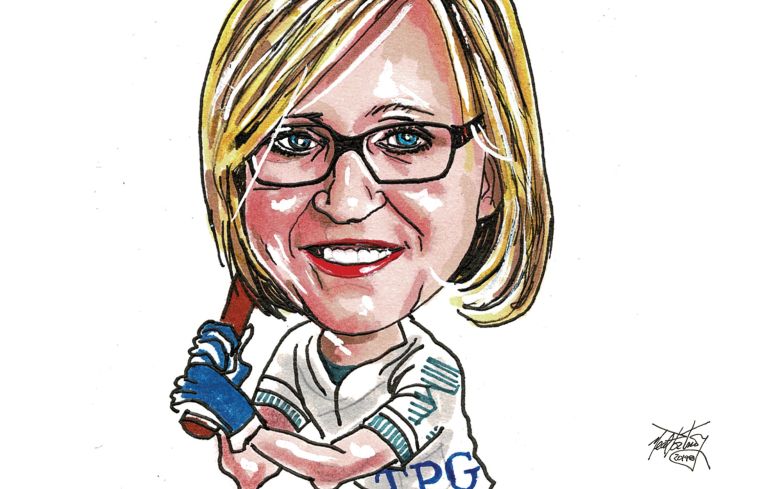
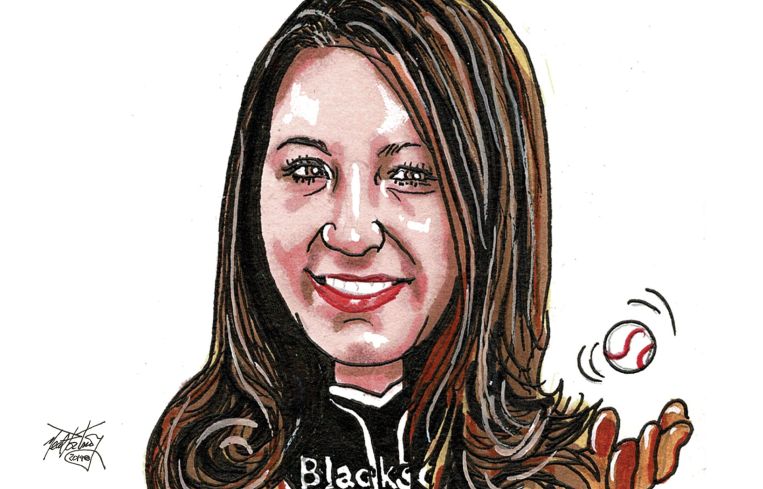
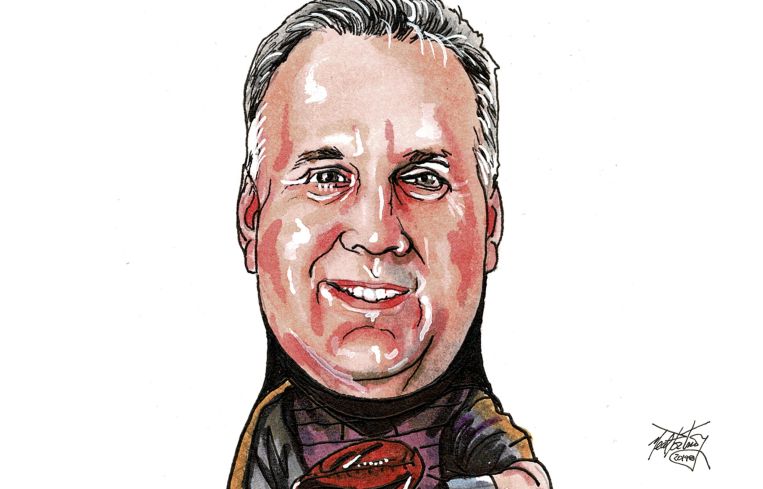
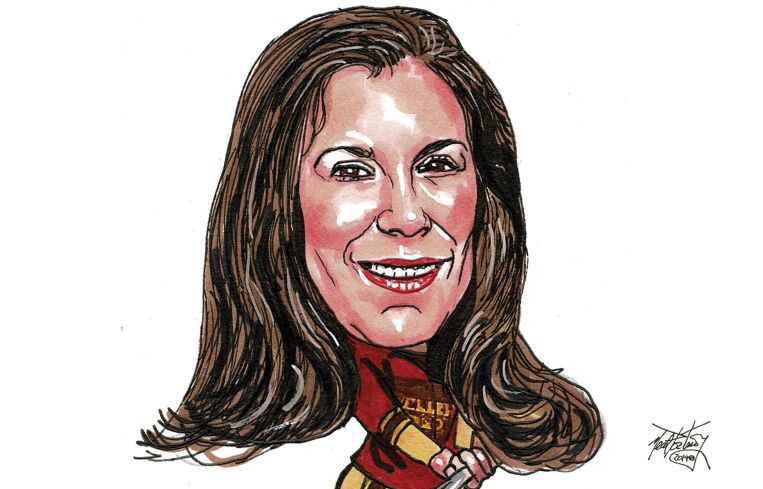
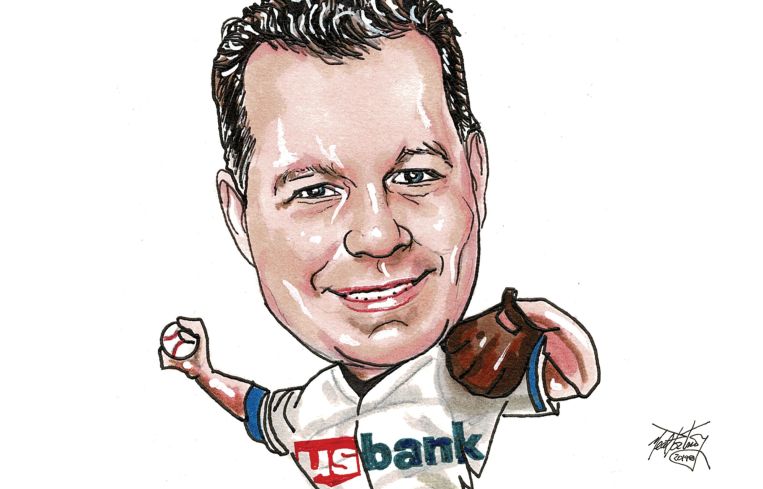
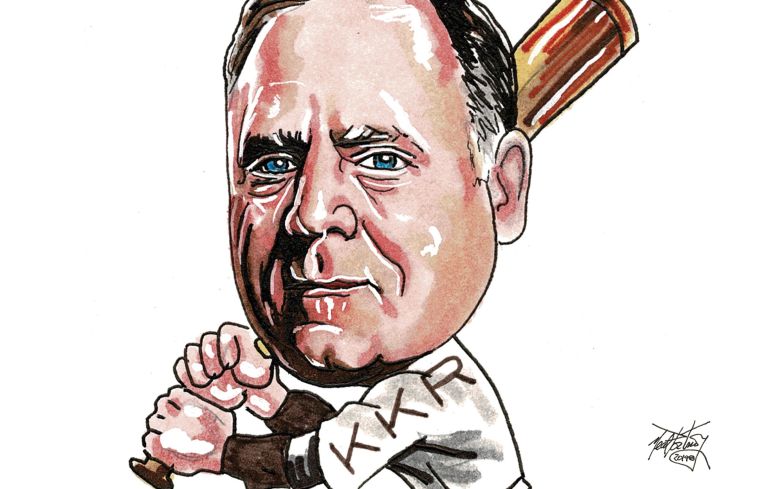
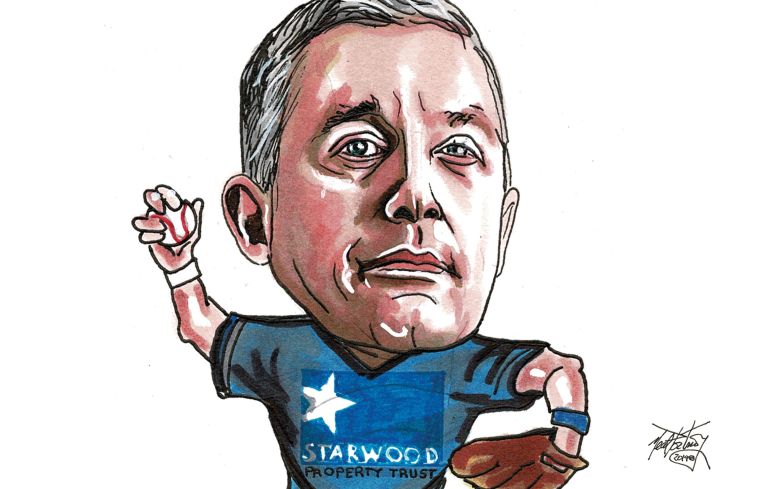
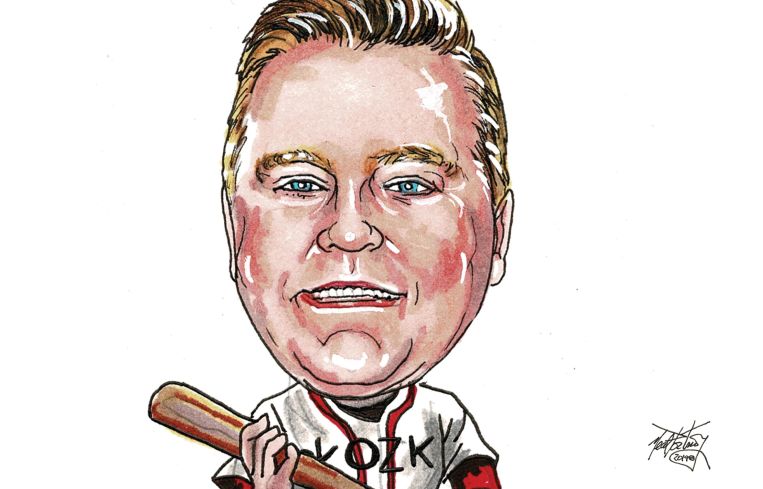
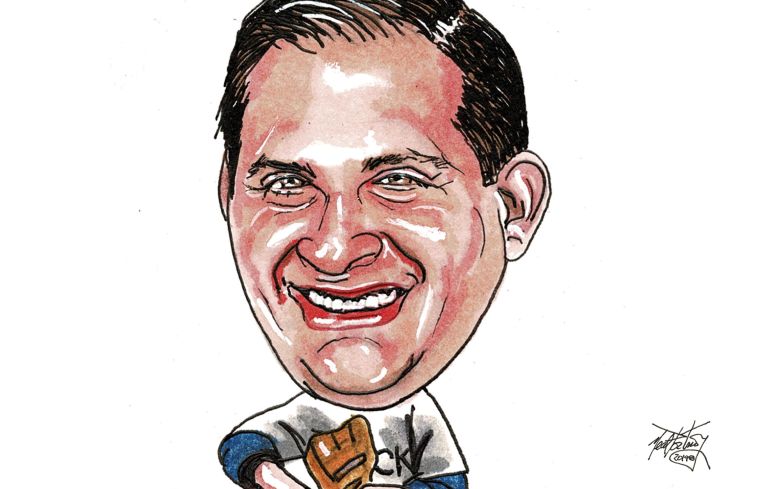

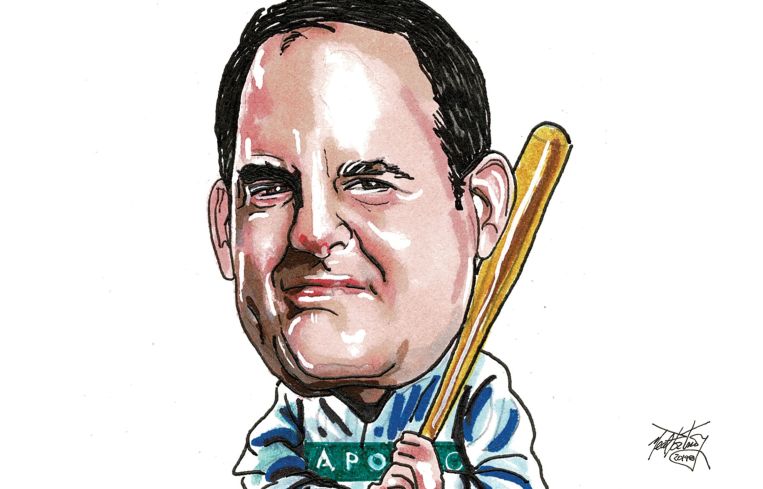

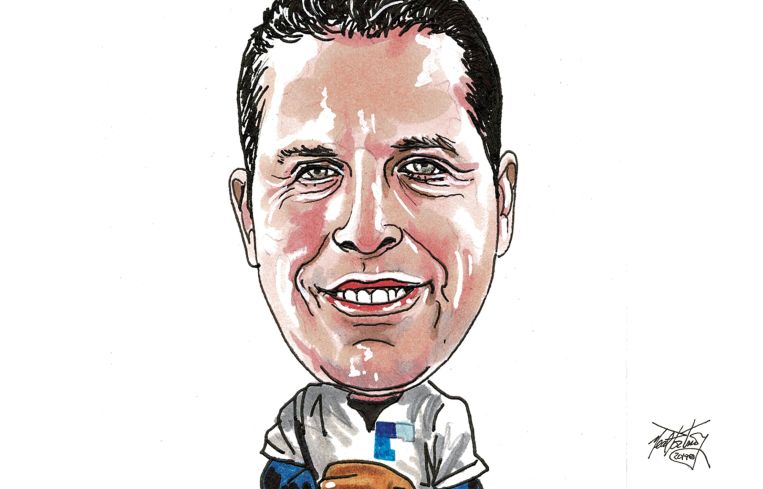
Welcome to Commercial Observer’s inaugural Lenders Issue!
New York’s owners are placed under the spotlight on an annual basis via our Owners Magazine, and we decided it was high time that the all-stars behind some of the biggest and most interesting debt platforms were given a chance to emerge from the dugout and step up to the plate.
We surveyed a cross-section of 20 of the industry’s heaviest hitters on everything from their biggest deals of the year, to where there’ll be consolidation in the event of a (gulp) downturn, to who’d play them in their biopic and which karaoke song they love to croon when they’re off the clock.
Each of those featured are undoubtedly true industry MVPs and so each lender was given their own baseball card featuring their vital stats, and outfitted accordingly. Knowing this bunch, be prepared for a few curveballs.
Batter up!—Cathy Cunningham, Mack Burke and Matt Grossman
Andrea Balkan
Age: 55
Hometown: White Plains, New York
Position: Managing Partner at Brookfield Asset Management
Year drafted: 2002
Previous teams: Chemical Bank, Merrill Lynch
Handedness (in signing loan docs): Right
College attended: Wesleyan University
2019 originations (year to date): $3B
If you had one minute with Jerome Powell, what would you say to him? Do you think there is more inflation in the economy then the headline numbers are indicating?
Which 2019 closed deal are you most proud of? We provided a $749 million loan to the Milstein family for the renovation of 335 Madison Avenue. This was a classic example of how we use our platform for the benefit of our borrowers and investors. We took down the entire first mortgage and mezzanine loan, and will be syndicating the first mortgage after the closing.
Where in the capital stack are you happiest playing, and what’s your competitive edge in winning deals? We like the risk-adjusted returns in the 60 to 80 percent loan-to-value tranche of the capital stack. Our competitive edge is in providing borrowers with speed and certainty of execution, and our willingness to take down the entire capital stack to create a mezzanine loan which we will retain.
What’s the biggest change you’ve seen year-over-year in loan request characteristics? Banks have become increasingly aggressive in providing construction loans on a recourse basis. Borrowers have been asking non-bank lenders to provide non-recourse construction loans at higher leverage points, and with weaker covenants.
Does never losing a dollar on a deal make you a good lender? No. A good portfolio manager seeks to generate a strong risk adjusted return on a portfolio of loans.
Where in the market will there be consolidation in the event of a correction or downturn? Lenders who finance themselves with repo will be increasingly vulnerable to a downturn.
What keeps you up at night? I have three teenagers. Everything keeps me up at night.
Closing out the year, which burning question remains largely unanswered? What impact will the WeWork fallout have on the office market?
Lightning Round
Dream celebrity dinner date (person and restaurant): Melinda Gates – any restaurant she chooses.
Last book you read: “Educated,” by Tara Westover
Favorite TV show: “Billions” because of that amazing shot of Lower Manhattan real estate at the beginning of each episode.
Who’d play you in your biopic?: Mariska Hargitay
Biggest indulgence: A walk by myself on the beach in Montauk.
Favorite vacation spot: The Cove, Atlantis
Go-to karaoke song: “Hit Me With Your Best Shot”
Bert Crouch
Age: 40
Hometown: Dallas, Texas
Position: Managing Director at Invesco Real Estate
Year drafted: 2010
Previous teams: Wells Fargo, Hunt Realty
Handedness (in signing loan docs): Left
College attended: University of Texas
2019 originations (year to date): $2.5B
If you had one minute with Jerome Powell, what would you say to him? I don’t envy your position as it seems to be a no-win scenario. Just do your best to maintain autonomy, stick to the Fed’s mission, and manage the market’s expectations by being transparent and communicative.
Which 2019 closed deal are you most proud of? 110 William Street: Our largest principal transaction yet ($350 million) with repeat sponsors [or] relationships (KBS/Savanna), a short fuse (30 days to close) and a complex A-note syndication post close (five participants, all international).
Where in the capital stack are you happiest playing, and what’s your competitive edge in winning deals? Our sweet spot is generally “light transitional” senior bridge loans focused on well-capitalized sponsors needing floating-rate financing in the 65 to 70 percent LTV range on institutional quality collateral. While this space is highly competitive, the majority of our business is driven by repeat relationships.
What’s the market’s biggest misconception about CRE lenders today? That all non-bank bridge lenders are targeting double-digit returns and will only be in the space until the market turns. Invesco Real Estate has an owner’s mindset, yet a very moderate cost of capital and a business model [and] team built for the long term. We are highly focused in our credit box with an emphasis on consistent and certain execution.
What’s the biggest change you’ve seen year over year in loan request characteristics? More refinancings as floating rates have come down and spreads have stayed compressed. Also seeing both Libor floors and non-recourse carve-out guarantor covenants being heavily negotiated.
Does never losing a dollar on a deal make you a good lender? Not sure if this is a trick question, but the short answer is yes. I’ve never met a lender that’s consistently in the business through cycles and has never lost “a dollar.” That would be rarified air.
Where in the market will there be consolidation in the event of a correction or downturn? Mid-sized credit managers with sizable infrastructures that are solely reliant on one capital source or the CLO market for their repo takeout financing. It doesn’t take much for institutional [or] public capital sources to get skittish or for the structured finance markets to lock up; it would come down to how prolonged the correction was.
What keeps you up at night? Making one big mistake. Pricing and timeframes are both tight today in the bridge lending space, especially at the higher end of the credit quality spectrum. That doesn’t mean attractive deals aren’t getting done, but it does mean that there’s little room for error.
“When I’m not doing deals, you’ll find me...” Chauffeuring my kids between weekend sporting events.
Lightning Round
Dream celebrity dinner date (person and restaurant): Jim Morrison at the Whiskey A Go-Go circa 1966
Last book you read: “The Tale of Peter Rabbit” (or whatever else my 5-year-old son demands at bedtime)
Favorite TV show: “It’s Always Sunny in Philadelphia”
Who’d play you in your biopic? Ask my wife...
Biggest indulgence: Vintage vinyl
Favorite vacation spot: Telluride
Go-to karaoke song: Whatever my 11-year-old daughter is hooked on at the time.
Warren de Haan
Age: 47
Hometown: Los Angeles, California
Position: Managing Partner, ACORE Capital
Year drafted: 2015
Previous teams: Starwood Property Trust, Countrywide Commercial Real Estate Finance
Handedness (in signing loan docs): Right
College attended: Cornell University
2019 originations (year to date): $5B
If you had one minute with Jerome Powell, what would you say to him? Two things: First I would express sympathy (regarding his job.) Then I’d ask him for a copy of his college thesis entitled “South Africa, Forces for Change” (I am from South Africa).
Which 2019 closed deal are you most proud of? I love all my children equally.
Where in the capital stack are you happiest playing, and what’s your competitive edge in winning deals? We provide efficient solutions for our borrowers’ complex transactions. We are a one stop shop balance sheet lender. We originate and hold our loans on balance sheet with loan-to-values up to 80 percent.
What’s the biggest change you’ve seen year over year in loan request characteristics? Pricing has tightened. Loan requests from our core clients remain balanced from a credit standpoint.
Are you receiving a higher volume of permanent or bridge loan requests? About 85 percent of what we do is bridge loans and 15 percent permanent. ACORE recently launched its fixed-rate balance sheet program. Given tight spreads and low interest environment, we are getting more inquiry for fixed-rate alternatives.
There’s been a pushback against the coworking industry. Would you finance a deal that included coworking tenants today? Our view is coworking is here to stay. Not all coworking companies are made equal. We evaluate on a deal by deal basis.
Most underrated secondary or tertiary market from an investment perspective? Bozeman, Montana.
Does never losing a dollar on a deal make you a good lender? Lender business plans vary significantly. ACORE’s business plan is: Lend; get paid back in full, with interest; rinse and repeat! We are prepared to deal with workouts with a 30-person in-house asset management team. But, we never originate loans with the intention or expectation of losing any money or taking properties back.
Where in the market will there be consolidation in the event of a correction or downturn? Having scale, liquidity and access to capital will separate winners and losers in a downturn. Less active, less well-capitalized lenders could be squeezed or consolidated.
What keeps you up at night? Barking dogs and car sirens! Oh, and the impact of politics on our social and economic wellbeing.
Closing out the year, which burning question remains largely unanswered? What is the long-term effect of our children’s obsession with iPads and iPhones? Have we ruined the next generation? How will the world pay for the infrastructure that will be required to defend our cities from rising seas?
“When I’m not doing deals, you’ll find me...” Hanging with friends and family outdoors.
Lightning Round
Dream celebrity dinner date (person and restaurant): Not my thing
Last book you read: “Bad Blood: Secrets and Lies of a Silicon Valley Startup”
Favorite TV show: I am light on TV but I value comedy
Who’d play you in your biopic: I am not that interesting. Perhaps a reluctant observer?
Biggest indulgence: Waterskiing
Favorite vacation spot: Our lake house in Connecticut
Go-to karaoke song: “Creep” by Radiohead. I am a challenged singer. The song makes me sound good!
Jeff Fastov
Age: 60
Hometown: Boston
Position: Senior Managing Director at Square Mile Capital Management
Year drafted: 2013
Previous teams: Goldman Sachs, Moody’s
Handedness (in signing loan docs): Right
College attended: University of Rochester
2019 originations (year to date): $4.5B
If you had one minute with Jerome Powell, what would you say to him? Stay strong.
Which 2019 closed deal are you most proud of? That’s like picking among my children, I just can’t do it. I love them all.
Where in the capital stack are you happiest playing, and what’s your competitive edge in winning deals? The gap between a senior bank loan and common equity. We move quickly and deliver creative and certain solutions across nearly all our borrowers’ capital needs.
What’s the market’s biggest misconception about CRE lenders today? The lowest quoted spread is the most cost-effective loan.
What’s the biggest change you’ve seen year over year in loan request characteristics? A lower Libor floor.
Are you receiving a higher volume of permanent or bridge loan requests? We’ve always focused on bridge loans. No change.
There’s been a pushback against the coworking industry. Would you finance a deal that included coworking tenants today? Yes, if, assuming they go dark, the underwriting still holds up.
Most underrated secondary or tertiary market from an investment perspective? Tampa, Salt Lake City and Boise.
Does never losing a dollar on a deal make you a good lender? Theoretically, no. Practically, yes.
Where in the market will there be consolidation in the event of a correction or downturn? The number of fund managers will decrease.
Have you seen an uptick in loan defaults or workouts in your portfolio in the past 12 months? If so, is there a theme in asset class or location, and do you anticipate loan sales in 2020? Stress remains moderate overall; stress in retail (especially fashion) continues to amaze. Don’t expect to sell loans next year.
What keeps you up at night? My performance at an upcoming father-daughter wedding dance.
Closing out the year, which burning question remains largely unanswered? Do new entrants throwing Hail Marys actually get traction or not?
“When I’m not doing deals, you’ll find me...” Losing money on the golf course or trying to keep up with my family on the ski slopes.
Lightning Round
Dream celebrity dinner date (person and restaurant): Bishop George Berkeley (“Philosopher of Mind”), Atla (Mexican)
Last book you read: “Suicide of the West,” by Jonathan Goldberg
Favorite TV show: “Banshee”
Who’d play you in your biopic?: Johnny Weissmuller
Biggest indulgence: Eating super-hot Thai food
Favorite vacation spot: Big Sky, Montana
Go-to karaoke song: Virtually none
Mark Fogel
Age: 51
Hometown: Woodbury, New York
Position: CEO & President, ACRES Capital
Year drafted: 2012
Previous teams: Arbor Realty Trust, Forest City Ratner, General Growth Properties
Handedness (in signing loan docs): Right
College attended: University of Delaware, NYU
2019 originations (year to date): $650M
If you had one minute with Jerome Powell, what would you say to him? I would not want to be in your shoes. You should not feel pressured by political winds to make poor decisions that may have negative long-term effects on the economy.
Which 2019 closed deal are you most proud of? Residence Club at Key Largo, Florida. This deal demonstrated our ability to create a new construction loan with many financial complexities. It highlighted our ability to negotiate and structure a situation that best suited to both the borrower and the lender.
What’s the market’s biggest misconception about CRE lenders today? Just because a lender is well capitalized doesn’t make them a good partner in transactions. Borrowers need to think about a lender’s track record and how the lender has dealt with similar transactions. There should be less of a focus on rates and proceeds, and more on experience and track record.
What’s the biggest change you’ve seen year over year in loan request characteristics? Because of the high level of liquidity coming into the commercial real estate debt space, borrowers have begun to gain the upper hand in negotiating softer language in loan covenants and guarantees. Additionally, we are seeing attempts to drive down pricing and expand proceeds beyond sensible levels.
Most underrated secondary or tertiary market from an investment perspective? We like many of the infill locations in the Midwestern cities that have thrived economically because of growth industries. Cities like Cincinnati are seeing a flourishing downtown and can now justify new construction.
Does never losing a dollar on a deal make you a good lender? Never losing a dollar on any deal would entail extreme caution or extreme luck, neither of which I feel are completely realistic. What makes a good lender is understanding all the risks associated with transactions and having the ability to manage those risks.
Where in the market will there be consolidation in the event of a correction or downturn? Some of the newer commercial real estate participants in the market are likely to be acquired by more established lenders if the market turns in the wrong direction. The new participants likely don’t have the capital or human resources to deal with the challenges they may face. Further, since many of them have only existed in an upcycle, they do not have the necessary experience to navigate a challenging market environment.
What keeps you up at night? My children — their school, sports, and futures.
Closing out the year, which burning question remains largely unanswered? Is the Jets’ head coach going to survive this year? And who will the Mets hire as their next manager?
Lightning Round
Dream celebrity dinner date (person and restaurant): Bill Gates at a pizzeria
Last book you read: “An Army at Dawn” by Rick Atkinson
Favorite TV show: “Seinfeld”
Who’d play you in your biopic?: Bryan Cranston
Biggest indulgence: Ice cream
Favorite vacation spot: Anywhere with a great fishing opportunity
Go-to karaoke song: “Piano Man” Billy Joel
Jeff Friedman
Age: 57
Hometown: Santa Monica, California
Position: Co-CEO, Mesa West Capital
Year drafted: 2004
Previous teams: Maguire Partners, Credit Suisse, Nomura Securities, Simpson Thacher (in the olden days!)
Handedness (in signing loan docs): Lefty, 100 percent
College attended: UCLA and University of Michigan
2019 originations (year to date): $2.8B
If you had one minute with Jerome Powell, what would you say to him? Just say no to further quantitative easing!
Which 2019 closed deal are you most proud of? A $404 million mortgage financing on 32 Old Slip in NYC for RXR Realty. High-profile, good size, great real estate and a great sponsor. It was competitively bid, and we worked hard to get the business.
What’s the market’s biggest misconception about CRE lenders today? That CRE lenders are all alike. We are all working different parts of the CRE lending market in terms of risk and return and are all different in terms of providing service to our customers. It would be like saying all flavors of ice cream are the same — which might have been true until Ben & Jerry’s Cherry Garcia was invented!
What’s the biggest change you’ve seen year over year in loan request characteristics? Spreads have been diving in, especially on transitional loans. Some covenant weakening but nothing like pre-global financial crisis vintage yet.
There’s been a pushback against the coworking industry. Would you finance a deal that included coworking tenants today? Yes, we would consider, so long as [it was at] 20 percent of leasable space or less. We have been consistent regarding being cautious on coworking, which in hindsight seems like the correct call.
Most underrated secondary or tertiary market from an investment perspective? Austin, although not underrated, continues to grow big time. Fundamentals have been fantastic and capital flows will follow.
Does never losing a dollar on a deal make you a good lender? Losing a dollar as a lender doesn’t necessarily make you a bad lender. But while it is okay to lose some dollars on some loans, losing a lot on any can be devastating.
Where in the market will there be consolidation in the event of a correction or downturn? There has been higher volatility lending in the past few years — on spec construction, condos, tertiary markets, tougher sponsors. If there is a correction it would seem there will be some painful exposure there.
What keeps you up at night? My wife’s snoring and too much caffeine too late at night. Plus, the current state of the world including politics, economics and climate change.
Closing out the year, which burning question remains largely unanswered? When the shoe will drop (and what will cause it to happen).
“When I’m not doing deals, you’ll find me...” Outside hopefully, on land or water. And with my family.
Lightning Round
Dream celebrity dinner date (person and restaurant): Steve Jobs, if he were still alive, and preferably not at a vegetarian restaurant
Last book you read: “Lending for Dummies”
Favorite TV show: “Hogan’s Heroes” followed by “The Jetsons”
Who’d play you in your biopic?: Hopefully someone charming and handsome
Biggest indulgence: Ice cream
Favorite vacation spot: Tie between the mountains and the beach
Go-to karaoke song: Thankfully for others who are at the bar with me, I just say no!
Tim Groves
Age: 43
Hometown: Upper Brookville, New York
Position: Head of CRE Originations and Banking at CCRE
Year drafted: 2018
Previous team: Citi
Handedness (in signing loan docs): Yep
College attended: Cornell
2019 originations (year to date): $2.5B
If you had one minute with Jerome Powell, what would you say to him? Would love to hear his unfiltered thoughts on unprecedented negative yields in the global economy and his favorite Trump tweets about the Fed.
Which 2019 closed deal are you most proud of? [Our CMBS deal] CF 2019-CF1 represented the re-launch of our shelf issuance and is proof of concept on the re-launch of our platform. From the origination of each of our loans in the deal through to distribution of the CMBS bonds, we executed on exactly what we said we were going to do and then repeated that experience with CF 2019-CF2.
Where in the capital stack are you happiest playing, and what’s your competitive edge in winning deals? CCRE is a direct lender for fixed and floating rate mortgage and mezzanine debt. Conduit and SASB CMBS loans are our bread and butter.
What’s the market’s biggest misconception about CRE lenders today? The abundance of capital allocated to CRE debt over the past decade has shaped the current competitive landscape in many ways. It is a misconception to think this can be sustained in its current form. Changes in capital flows will change the CRE lending landscape in the coming years.
What’s the biggest change you’ve seen year over year in loan request characteristics? With spreads and base rates as tight as they are, [I’m] seeing more competition on structure.
Are you receiving a higher volume of permanent or bridge loan requests? Conduit and SASB CMBS lending are the core of our originations platform. While we are slowly growing our bridge lending capabilities, I would expect permanent requests to continue to account for the large majority of our originations.
There’s been a pushback against the coworking industry. Would you finance a deal that included coworking tenants today? Yes, with the right sponsor, location, structure and leverage that allow us to get comfortable with the credit.
Does never losing a dollar on a deal make you a good lender? A successful lender matches the needs of their capital to their capabilities while minimizing losses and serving their borrower’s needs.
Where in the market will there be consolidation in the event of a correction or downturn? The expansion of the number of debt funds in the CRE space over the past few years are likely to get pared back in a correction as sources of capital rationalize the field. Interestingly, a significant increase in higher-yielding opportunities away from CRE could have a similar impact.
What keeps you up at night? Coffee with lunch.
Closing out the year, which burning question remains largely unanswered? All things geopolitical risk.
Lightning Round
Dream celebrity dinner date (person and restaurant): Bill Murray, because he might read this and decide why not and Masa because I’m a suckerfor sushi (Bill, my treat!)
Last book you read: “The Spy and the Traitor”
Favorite TV show: “Peaky Blinders”
Who’d play you in your biopic?: Gerard Butler
Biggest indulgence: Travel
Favorite vacation spot: Costa Rica
Go-to karaoke song: “The Gambler,” Kenny Rogers
Greta Guggenheim
Age: A lady never tells
Hometown: Marion, Kentucky
Position: DH … and CEO and President of TPG Real Estate Finance Trust
Year drafted: 2016
Previous teams: Ladder Capital; UBS; Bear Stearns; Credit Suisse
Handedness (in signing loan docs): Right
College attended: Swarthmore College
2019 originations (year to date): Approx. $3B
If you had one minute with Jerome Powell, what would you say to him? I would suggest to Mr. Powell that he save some room for rates for when we really need it. Don’t go too low too fast!
Where in the capital stack are you happiest playing, and what’s your competitive edge in winning deals? We focus on first mortgage loans up to 75 percent loan-to-value. Regarding strengths, we offer the most competitive terms and provide great ongoing service.
What’s the market’s biggest misconception about CRE lenders today? I would say the assumption that all lenders offer the same service and flexibility.
What’s the biggest change you’ve seen year over year in loan request characteristics? More bridge loan requests refinancing bridge loans.
There’s been a pushback against the coworking industry. Would you finance a deal that included coworking tenants today? Yes, if solvent, and in a successful location. We have always been very selective on the industry.
Most underrated secondary or tertiary market from an investment perspective? Paducah, Kentucky — near my hometown!
Does never losing a dollar on a deal make you a good lender? Yes; as a lender, if the best you can do is get back par, not having losses is important.
Where in the market will there be consolidation in the event of a correction or downturn? I think we could see some consolidation among smaller debt funds, who have less access to capital compared to some of the larger, more scaled players.
Have you seen an uptick in loan defaults or workouts in your portfolio in the past 12 months? If so, is there a theme in asset class or location, and do you anticipate loan sales in 2020? No, we have not experienced a default or workout since inception in late 2014. We are extremely diligent about asset and portfolio management.
What keeps you up at night? In addition to credit and portfolio performance, a political threat to free markets.
Closing out the year, which burning question remains largely unanswered? From my perspective, the biggest question is when spreads will begin to widen.
“When I’m not doing deals, you’ll find me...” Wondering why I’m not doing deals!
Lightning Round
Dream celebrity dinner date (person and restaurant): Mike Nash at Chick-fil-A
Last book you read: “Destiny of the Republic” (It’s about President Garfield)
Favorite TV show: “Barry”
Who’d play you in your biopic?: Cate Blanchett
Biggest indulgence: Uber Black
Favorite vacation spot: A houseboat on Kentucky Lake
Go-to karaoke song: “Crazy” by Patsy Cline
Katie Keenan
Age: 35
Hometown: Bethesda, Maryland
Position: Managing Director, Blackstone
Year drafted: 2012
Previous teams: Lehman Brothers, Lubert-Adler, G2 Investment Group
Handedness (in signing loan docs): Right
College attended: Harvard
2019 originations (year to date): $2.2B
If you had one minute with Jerome Powell, what would you say to him? I would ask him about what drives his decisions on rates. With all of the sometimes-conflicting macro data and the rate environment around the world, what are the key factors in moving one way or the other?
Which 2019 closed deal are you most proud of? In September, we closed a $540 million financing for Deerfield’s acquisition of 345 Park Avenue South. This transaction gave us the opportunity to leverage our skill set as an experienced investor and key player in the life sciences sector — Blackstone owns BioMed, a leading provider of real estate solutions to the life sciences community. This transaction creates a market-leading life sciences facility in the heart of Midtown South.
What’s the market’s biggest misconception about CRE lenders today? There’s a perception that the influx of capital is causing risk tolerance to increase. However, the biggest difference about the lending market today, relative to the last cycle and the increase in alternative lenders such as ourselves, is that we are investing balance-sheet capital on behalf of the funds we manage and therefore have the perspective of a long-term investor.
We care deeply about the credit risk we are taking and we live with it through maturity, which makes us highly incentivized to make safe, well-structured loans that are sound investments and work well for our borrowers.
There’s been a pushback against the coworking industry. Would you finance a deal that included coworking tenants today? Coworking as a whole is a concept that makes sense — it’s clear there is demand in the market for well-amenitized, flexible office space, and a strong coworking concept can be a valuable amenity for a traditional office building. With that said, there are many different operators and different business models for coworking, and we would evaluate the specifics of a coworking space in a given building.
Does never losing a dollar on a deal make you a good lender? Preservation of capital is job number one for a lender. Our goal is to make a loan, collect interest, and get paid back at par, and with fixed upside — it doesn’t make sense to make investments where we could lose principal. We’ve had zero percent losses across $63 billion of originations in our BREDS business, and we’re highly focused on continuing that track record.
Have you seen an uptick in loan defaults or workouts in your portfolio in the past 12 months? No, our portfolio is 100 percent performing. We are very happy with the originations we’ve made to date and do not anticipate selling anything out of our portfolio.
What keeps you up at night? Honestly, my toddler. But when he behaves, I think a lot about the “outside” risks that could impact our industry — geopolitics, the trade war, general macro uncertainty.
Lightning Round
Dream celebrity dinner date (person and restaurant): Susan B. Anthony and Gloria Steinem, together! At the new Eleven Madison Park.
Last book you read: “Becoming,” by Michelle Obama
Favorite TV show: “Great British Bakeoff”
Biggest indulgence: Exploring new travel destinations — we just went to the Algarve in Portugal, which was beautiful
Favorite vacation spot: Hudson River Valley
Go-to karaoke song: “Respect” by Aretha Franklin
“When I’m not doing deals, you’ll find me...” Exploring the best neighborhood in New York City: Astoria!
Michael Magner
Age: 57
Hometown: Richmond, Massachusetts
Position: Head of U.S. Loan Originations, Natixis
Year drafted: 2000
Handedness (in signing loan docs): Right
College attended: UMass
2019 originations (year to date): $4.5B
If you had one minute with Jerome Powell, what would you say to him? I would tell him to call the game as he sees it, because there is no instant replay in the global economy.
Which 2019 closed deal are you most proud of? The $350 million financing for Crescent Heights on Ten Thousand. This is a trophy, LEED Gold, multifamily project on Santa Monica Boulevard in Century City with one of the top residential owners and developers in the country. Everyone stepped up to the plate to make this a winner.
Where in the capital stack are you happiest playing, and what’s your competitive edge in winning deals? We can bat anywhere in the order, but we like to be in all the tranches where we can control the distribution and that is our competitive edge.
What’s the market’s biggest misconception about CRE lenders today? We all play the game differently. The borrowers and mortgage brokers know what pitches to throw because some lenders are long-ball hitters while others play short ball. Some lenders add full-term IO and mezzanine to create more offense while others protect the plate with recourse and structure. In the end, each lender uses their team’s talent to score and win.
What’s the biggest change you’ve seen year over year in loan request characteristics? The players keep getting bigger and faster.
There’s been a pushback against the coworking industry. Would you finance a deal that included coworking tenants today? Yes, but like any tenant roster you need to properly manage or limit the exposure in the context of the deal.
Does never losing a dollar on a deal make you a good lender? It depends on the lender’s risk tolerance. As a lender you need to appropriately price for your level of risk.
What keeps you up at night? Negative interest rates.
Closing out the year, which burning question remains largely unanswered? Are we still in the seventh-inning stretch or have we gone into extra innings?
“When I’m not doing deals, you’ll find me...” At home playing with our four dogs (Great Dane, Dachshund, Shih Tzu and Cockapoo).
Lightning Round
Dream celebrity dinner date (person and restaurant): Babe Ruth at Peter Luger Steakhouse
Last book you read: “The Great Bridge: The Epic Story of the Building of the Brooklyn Bridge” by David McCullough
Favorite TV show: Just finished the second season of “Succession”
Who’d play you in your biopic?: Ben Affleck. He is taller, thinner and better looking than me.
Biggest indulgence: My wife’s Italian cooking
Favorite vacation spot: Turks and Caicos
Go-to karaoke song: “New York, New York” (Frank Sinatra)
Kara McShane
Age: 47
Hometown: Glenmoore, Pennsylvania
Position: Managing Director, Head of Structured Real Estate at Wells Fargo
Year drafted: 2010
Previous teams: Morgan Stanley, AllianceBernstein and Sanford C. Bernstein & Co
Handedness (in signing loan docs): Right
College attended: Duke University (undergrad) and Columbia University’s Graduate School of Business (MBA)
2019 originations (year to date): $10B+, including CMBS and balance sheet origination from Structured Real Estate
Which 2019 closed deal are you most proud of? The deal I’m most proud of for this year hasn’t come to market yet, so I can’t say.
Where in the capital stack are you happiest playing, and what’s your competitive edge in winning deals? Wells Fargo is the largest CRE lender in the country. My team specifically plays in stabilized assets and lightly transitional. We can offer the full range of leverage and size: Our competitive advantage is that we are everywhere, we lend throughout cycles, we can offer balance sheet loans or CMBS, and we service our own loans.
What’s the market’s biggest misconception about CRE lenders today? That lenders are a commodity. That it’s the lender’s job to make the investor’s returns work, and that we are being paid fairly for the risk.
What’s the biggest change you’ve seen year over year in loan request characteristics? More requests for larger, longer term, fixed-rate loans as investors aim to lock in low rates.
Are you receiving a higher volume of permanent or bridge loan requests? Permanent loans, given where rates are; if you can term out in this rate environment, you should.
There’s been a pushback against the coworking industry. Would you finance a deal that included coworking tenants today? Yes, but of course, we stay mindful of the overall exposure and tenant concentration.
Does never losing a dollar on a deal make you a good lender? No, not necessarily. You learn from your mistakes. If you’ve never lost money, then you probably haven’t taken enough risk (and may not have served your customers properly).
Where in the market will there be consolidation in the event of a correction or downturn? Non-bank lenders and debt funds.
What keeps you up at night? My mind … thinking too much.
Closing out the year, which burning question remains largely unanswered? When will this cycle turn?
“When I’m not doing deals, you’ll find me...” Spending time with my family.
Lightning Round
Dream celebrity dinner date (person and restaurant): Bradley Cooper at an Eagles game
Last book you read: “The Untethered Soul” by Michael A. Singer
Favorite TV show: “Friends” (I know, I’m dating myself)
Who’d play you in your biopic?: Sandra Bullock or Jennifer Aniston
Biggest indulgence: Dessert! Chocolate soufflé is my favorite.
Favorite vacation spot: Italy
Go-to karaoke song: I’ve never done karaoke, and there’s a reason. If forced, “American Pie” or “Hotel California.”
Jason Park
Age: 41
Hometown: Sacramento, California (current); Tustin, California (born and raised)
Position: National Head of Underwriting, Commercial Real Estate, U.S. Bank
Year drafted: 2015
Previous teams: Wells Fargo, Citigroup
Handedness (in signing loan docs): Right
College attended: University of Tampa
2019 originations (year to date): $14.8B
If you had one minute with Jerome Powell, what would you say to him? The economy is still performing relatively well. In this environment, should we be moving more cautiously on cutting rates?
What’s the market’s biggest misconception about CRE lenders today? That we’re back to pre-downturn years in terms of deal structures and the aggressiveness of the lending environment. Structures have definitely loosened over the past few years as competition has picked up. But the typical transaction has lower leverage and more equity than the deals in the last cycle when it wasn’t unusual to have 80 percent loan-to-cost, 75 percent loan-to-value. You just don’t see that now. There’s a lot more equity in front of the debt.
What’s the biggest change you’ve seen year over year in loan request characteristics? We have seen more borrowers start to seek higher leverage financing due primarily to compressing development spreads. However, most of these financing requests are being originated by non-bank lenders. We’ve also seen the development pipeline slow, which we view as a good thing. In the last cycle there was a lot of overbuilding. You just don’t see that today.
Are you receiving a higher volume of permanent or bridge loan requests? Those markets continue to be very active and highly competitive. You have CMBS lenders, life insurance companies, debt funds, banks. There’s a lot of capital available and rates are low. From a borrower’s perspective, they see this and believe it’s a good time to lock in a long-term deal.
There’s been a pushback against the coworking industry. Would you finance a deal that included coworking tenants today? We talk about this quite a bit. We continue to look at opportunities on a case-by-case basis and get involved in transactions when the economics make sense. There’s stress with some of the operators, but our long-term view is that there will continue to be demand for coworking space.
Most underrated secondary or tertiary market from an investment perspective? I live in Sacramento and the city is a poster child for secondary markets. We were hit hard in the last downturn and have been slow to recover, so the cycle is still early here. But there’s a lot of interest in cities like this, especially among millennials.
Where in the market will there be consolidation in the event of a correction or downturn? I’d focus on the debt funds. We’ve gone from about 60 debt funds in 2016 to 140 today. If there’s a correction, some of those funds are likely to struggle and some of that lending activity will be absorbed back into the bank market.
What keeps you up at night? The amount of capital on the sidelines. Investors are coming from around the world to invest in U.S. commercial real estate. That keeps cap rates relatively low, but it can also drive buyers to reach on transactions.
“When I’m not doing deals, you’ll find me...” On a lake on a boat.
Lightning Round
Last book you read: “The Fourth Industrial Revolution,” by Klaus Schwab
Favorite TV show: “Ozark”
Who’d play you in your biopic?: Al Pacino
Biggest indulgence: Mint chocolate chip ice cream
Favorite vacation spot: Maui
Go-to karaoke song: I’m not one for karaoke. No one needs to hear me sing.
Matt Salem
Age: 45
Hometown: Weston, Connecticut
Position: Head of RE Credit at KKR
Year drafted: 2015
Previous teams: Rialto, Goldman Sachs
Handedness (in signing loan docs): Righty
College attended: Bates College
2019 originations (year to date): Approx. $2.5B
Which 2019 closed deal are you most proud of? We provided a $216 million financing to an existing sponsor on a multifamily portfolio comprised of three properties, each located in a different state. The sponsor’s business plan for the properties entailed finalizing construction and executing initial lease up. It touched on many of our strengths: ability to execute on a large loan, complex underwriting and structuring while maintaining flexibility. We pride ourselves on these strengths in addition to being responsive and transparent to our sponsors, living by the KKR motto of “like and trust.”
Where in the capital stack are you happiest playing, and what’s your competitive edge in winning deals? In our direct lending business, we are predominately first mortgage lenders. Our competitive edge is being able to leverage all of KKR. As an example, we are fully integrated with our real estate equity investing team, enhancing our ability to think like owners so we can be likeminded and responsive to our clients’ needs. From a capital perspective, KKR gives us access to a low cost of capital and enables us to target larger loan sizes ($190 million average), which limits the competitive playing field.
What’s the market’s biggest misconception about CRE lenders today? In liquid and low volatile markets, property owners tend to think of lenders in economic terms like spread and proceeds. The market undervalues the amount of impact a lender can have on a transitional business plan as it evolves. The dispersion in equity returns will be much greater than a handful of basis points if you don’t have a partner as your lender.
Are you receiving a higher volume of permanent or bridge loan requests? We are solely focused on the transitional lending segment and our pipeline continues to be very robust. We reviewed over $40 billion of loan opportunities in the last 12 months.
Where in the market will there be consolidation in the event of a correction or downturn? Transitional or bridge lending is the flavor of the day for many allocators of capital. The thirst for yield and the desire to diversify away from the corporate sector is fueling this demand. To meet these capital flows, there has been a large increase in the number of transitional lenders. However, with a benign economic environment, it’s difficult to judge which firms have a real client franchise and strong credit culture. I think we’ll have consolidation when the tide goes out and capital allocators can measure lenders on a full-cycle track record.
What keeps you up at night? Mostly, typical parent issues. Otherwise, I try my best not to worry about things that are out of my control, though climate change and the polarized political environment are definitely areas of concern.
Closing out the year, which burning question remains largely unanswered? Can anyone beat the New England Patriots? Please?
Lightning Round
Dream celebrity dinner date (person and restaurant): Pat Mahomes at Joe’s KC BBQ
Last book you read: “Stuart Little” with my youngest child
Favorite TV show: Still getting through “Game of Thrones,” so no spoilers please!
Who’d play you in your biopic?: Paul Rudd
Biggest indulgence: Vacations
Favorite vacation spot: Hawaii
Go-to karaoke song: “Shallow” by Lady Gaga (duet with my wife)
Dennis Schuh
Age: 47
Hometown: New Canaan, Connecticut
Position: Chief Origination Officer, Starwood
Year drafted: 2016
Previous teams: J.P. Morgan; Fitch Ratings
Handedness (in signing loan docs): Right
College attended: Georgetown University
2019 originations (year to date): Approx. $4B
If you had one minute with Jerome Powell, what would you say to him? Low for long!!! Will you be voting for President Donald Trump in 2020?
Which 2019 closed deal are you most proud of? We closed a $100 million multifamily acquisition loan in Arlington, Virginia, a few blocks from Amazon’s future HQ2 in July. Our equity acquisition colleagues took a run at buying the property with a similar renovation business plan as the sponsor on our loan. As a firm, we had a very informed point of view on the ROI for the renovation dollars and the pro forma rents for new [or] renovated product in the market, a positive outlook for population and job growth in the D.C. MSA, and believed the long-term potential impact of Amazon on the micro market will likely be greater than most people are projecting.
Where in the capital stack are you happiest playing, and what’s your competitive edge in winning deals? Anywhere the risk [or] return feels the best. Interestingly, most market participants think of us as a first loss holder of debt but more and more of late we are involved in transactions where we are in the mortgage or senior mezz with junior mezz or preferred equity subordinate to our last dollar of risk. In terms of competitive, our edge, size, complexity and relationships would come to mind if I had to name three.
What’s the market’s biggest misconception about CRE lenders today? That everyone is racing to the bottom. I believe that the market has remained disciplined about the amount of leverage they are willing to offer and continue to hold the line on loan structure or at least the important structural features.
What’s the biggest change you’ve seen year over year in loan request characteristics? Libor floor negotiations.
There’s been a pushback against the coworking industry. Would you finance a deal that included coworking tenants today? Absolutely. We believe that coworking is a viable business model and can’t be ignored. While many owners [and] landlords were reluctant to sign coworking tenants several years ago, most have capitulated and even in many cases have created their own coworking brands to house in their buildings. We are certainly cognizant of the potential impact on cap rates and less liquidity on the sale of an asset depending on how much coworking represents in terms of NRA or NOI.
Where in the market will there be consolidation in the event of a correction or downturn? The banking system — we have too many banks in this country especially with increased regulations and technology advancements.
What keeps you up at night? My iPhone.
Closing out the year, which burning question remains largely unanswered? Was the problem the two-time Super Bowl MVP Eli Manning or was it the Giants offensive line?
“When I’m not doing deals, you’ll find me...” On the sidelines at a lacrosse or soccer game watching my four daughters, manning the grill at home or occasionally on the golf course.
Lightning Round
Dream celebrity dinner date (person and restaurant): Chris Farley “in a van down by the river” with Chinese takeout
Last book you read: Does the New York Post count?
Favorite TV show: “Seinfeld”
Who’d play you in your biopic?: Bugs Bunny since I assume Brad Pitt will already be taken
Biggest indulgence: Chocolate chip cookies
Favorite vacation spot: Nantucket, Massachusetts
Go-to karaoke song: “Sweet Caroline” (My oldest daughter is named Caroline.)
Richard Smith
Age: 57
Hometown: Garden City, New York
Position: Managing Director, Originations at Bank OZK
Year drafted: 2013
Previous teams: Capital One Bank, GE Capital, Fremont Investment & Loan, Heller Financial
Handedness (in signing loan docs): Right-handed
College attended: Adelphi University; graduate and undergraduate
2019 originations (year to date): $5.04B through Sept. 30, 2019
If you had one minute with Jerome Powell, what would you say to him? Hang in there buddy, it’s tough at the top.
Which 2019 closed deal are you most proud of? Our second-largest deal this year in New York was a transaction on a premier mixed-use asset which will set the standard for luxury in the market with a world-class sponsor and, reflecting our conservative philosophy, we are only 25 percent loan-to-value.
Where in the capital stack are you happiest playing, and what’s your competitive edge in winning deals? Our customers appreciate our expertise, our speed and certainty of execution, and the fact that we do not syndicate transactions. We are always the sole senior secured lender, typically with loan-to-cost and loan-to value from 40 to 60 percent.
What’s the market’s biggest misconception about CRE lenders today? The biggest misconception is that all CRE lenders and all CRE loans are created equally. Some market observers fail to appreciate our expertise in underwriting and structuring commercial real estate transactions, the value of the great sponsors with whom we typically do business, the quality of the assets we finance, and the protection that is provided to us by our very low loan-to-cost and loan-to-value metrics. Unless you really know the business, it is difficult to appreciate how conservative we are and how low-risk our portfolio is.
What’s the biggest change you’ve seen year over year in loan request characteristics? Many sponsors have become more aggressive in seeking higher leverage and lower pricing outside of our strike zone. We are having to work very hard to find great opportunities that fit our conservative business model and yield us a reasonable return.
There’s been a pushback against the coworking industry. Would you finance a deal that included coworking tenants today? It depends on the deal, the sponsorship, the leverage and the coworking company. There are significant differences in the balance sheets and business models of different coworking companies. We always have had a very cautious point of view regarding some of the more aggressive business strategies and, accordingly, we have not allowed ourselves to have a material or concentrated exposure to the leases of such companies.
Does never losing a dollar on a deal make you a good lender? Yes!
Where in the market will there be consolidation in the event of a correction or downturn? Over the past decade, there has been a large increase in the number of debt funds and private lenders in the commercial real estate market. By their nature, they pursue higher leverage transactions and higher returns than we ever would consider. Some of those more aggressive players could experience challenges, and that is likely to lead to some consolidation of that group in a downturn.
Have you seen an uptick in loan defaults or workouts in your portfolio in the past 12 months? No, our New York team has zero loan defaults and zero workouts.
What keeps you up at night? The ability to continue to find an adequate volume of new low-leverage, high-quality deals in a highly competitive environment.
Closing out the year, which burning question remains largely unanswered? When will the Jets finally have a winning season?
Lightning Round
Dream celebrity dinner date (person and restaurant): Joe Namath at Rossini’s
Last book you read: “Decision Points” by George Bush
Favorite TV show: Tie: “The Sopranos” and “The Honeymooners”
Biggest indulgence: Cigars and wine
Favorite vacation spot: Grand Cayman
Peter Sotoloff
Age: 42
Hometown: Chicago, Illinois
Position: Co-founder, Managing Partner and Chief Investment Officer, Mack Real Estate Credit Strategies
Year drafted: 2014
Previous teams: Blackstone (BREDS), Tribeca Associates, Goldman Sachs (Whitehall Funds)
Handedness (in signing loan docs): Right
College attended: Wharton School of the University of Pennsylvania
2019 originations (year to date): In excess of $5B
If you had one minute with Jerome Powell, what would you say to him? I don’t envy your position.
Which 2019 closed deal are you most proud of? Two deals: Old Post Office, Chicago — this deal was a creative collaboration with the senior bank lender to help the sponsor repurpose one of the largest buildings in North America. It’s exciting to complete a major deal in my hometown, with strong sponsor execution that should make a new future for a historically significant building. And Mt. Auburn Portfolio — we provided $310 million of mezz financing for an overall $1.4 billion recap of a 9,000-unit multifamily portfolio extending to STEM markets throughout the U.S. The deal employed a creative structure and we had the opportunity to utilize our extensive knowledge of the multifamily space and capitalize on our long-standing firm relationships.
What’s the market’s biggest misconception about CRE lenders today? That all lenders have multicyclical knowledge and in-house resources that enable them to successfully work through collateral performance issues. Not all lenders do.
What’s the biggest change you’ve seen year over year in loan request characteristics? Three changes I would flag: borrowers looking for maximum cash out, seeking to refinance expensive construction debt with new bridge loans, and requesting more condo inventory loans.
Does never losing a dollar on a deal make you a good lender? Making good overall risk-adjusted returns on an aggregate portfolio basis makes you a good lender. It is not likely that you will never have a loss on any loan, but if the losses are small and the returns excellent on the performing loans, you will, in aggregate, outperform a portfolio with very low risk, not one loan with a loss, and therefore very low returns.
Where in the market will there be consolidation in the event of a correction or downturn? We may see consolidation among public bridge lending vehicles that are not fully scaled and lack in-house asset expertise and infrastructure, or took on too much leverage. Access to liquidity at these times often creates “haves and have-nots” in the lending market when the cycle turns.
What keeps you up at night? Complacency. Are we thinking of everything? We live in a changing world and new issues must be spotted quickly. And like any serious lender I worry just the right amount about making sure our underwriting is excellent.
Closing out the year, which burning question remains largely unanswered? When will corporate defaults transfer to real estate lending and pricing?
“When I’m not doing deals, you’ll find me…” With my wife, two kids, and two dogs. Preferably in the Hamptons.
Lightning Round
Dream celebrity dinner date (person and restaurant): (CENSORED BY SPOUSE) at Elio’s
Last book you read: “Talking to Strangers,” Malcolm Gladwell
Favorite TV show: “Shark Tank”
Who’d play you in your biopic?: Jeff Goldblum
Biggest indulgence: Travel
Favorite vacation spot: Amalfi Coast
Go-to karaoke song: Any classic Sinatra tune
Chad Tredway
Age: 36
Hometown: Raised in Chicago, resides in Southport, Conn.
Position: Head of Real Estate Banking, J.P. Morgan
Year drafted: 2008
Previous team: Another multinational investment bank
Handedness (in signing loan docs): Right
College attended: Loyola
2019 originations (year to date): Commercial Banking’s CRE originations are approximately $21B
If you had one minute with Jerome Powell, what would you say to him? I’d ask about his thoughts on the growing deficit and the economic impacts of a negative interest rate scenario.
Which 2019 closed deal are you most proud of? Every deal we do is significant for our platform because we are, first and foremost, customer focused and the deal our customer is closing is typically the most important deal for them at that time. We never forget that without our clients we will not succeed.
Where in the capital stack are you happiest playing, and what’s your competitive edge in winning deals? We are primarily balance sheet lenders for our clients. Our competitive edge is speed of closing, the depth and breadth of J.P. Morgan and our loyal and advisory-based client relationships.
What’s the market’s biggest misconception about CRE lenders today? That banks are sleepy, slow moving institutions. In our real estate banking business we’re changing our culture to embrace technology, to become faster for our clients and to become more proactive. Our goal is to come to our clients with comprehensive, forward-looking strategic solutions to meet their unique needs.
Are you receiving a higher volume of permanent or bridge loan requests? Given where current rates are, our clients are looking to finance their projects for longer; seven- to 10-year loans are more common today.
Does never losing a dollar on a deal make you a good lender? We never forget that we are in a risk business and that our goal is to serve our clients in all market conditions. A good lender is made by the quality of its clients. At J.P. Morgan, I’m confident that we have clients that have the same fortress balance sheet principals that we do and that they are doing everything they can to prepare for a correction.
Have you seen an uptick in loan defaults or workouts in your portfolio in the past 12 months? If so, is there a theme in asset class or location, and do you anticipate loan sales in 2020? Our portfolio remains strong. Key themes for us include: a) We’re focused on investment-grade build-to-suits in core markets across the country; b) We’re focused on multifamily term loans with strong recurring cash flow; c) We’re focused on increasing our exposure to the industrial asset class.
What keeps you up at night? Geopolitical risk, technology valuations and potential for negative interest rates.
“When I’m not doing deals, you’ll find me...” Enjoying family game night with my wife and kids. Our favorites are Uno, Jenga and Twister.
Lightning Round
Dream celebrity dinner date (person and restaurant): Ruth Bader Ginsburg at Balthazar
Last book you read: “Learning to Lead” by Ron Williams and Karl Weber
Favorite TV show: Anything on HGTV
Who’d play you in your biopic?: Michael B. Jordan
Biggest indulgence: I always have dessert at dinner.
Scott Weiner
Age: 45
Hometown: New York City
Position: Senior Partner, Global Head of Commercial Real Estate Debt at Apollo Global Management
Year drafted: 2009
Previous teams: Barclays Capital, Lehman Brothers
Handedness (in signing loan docs): Lefty
College attended: Johns Hopkins University
2019 originations (year to date): $10B
Where in the capital stack are you happiest playing, and what’s your competitive edge in winning deals? We are relatively agnostic as to where we play in the capital stack – when we evaluate transactions, we allocate capital based upon where we believe we will receive the most compelling risk-adjusted return. We believe our competitive advantages include our first-call relationships with brokers, sponsors and like-minded lenders, our ability to underwrite and structure complex deals, our reliability and the value-add service we provide our borrowers.
What’s the market’s biggest misconception about CRE lenders today? I think one of the biggest misperceptions is that we are all competitive rivals. While the CRE credit market is competitive, it’s a very collegial market and in many cases, we partner with (and lend to) some of our biggest competitors. We and many of our peers have a business that is housed within a larger investment management organization that also invest in real estate equity. In many situations, we find ourselves lending to each other. We also partner with the larger global banks, whether we are splitting a loan with them or they are providing us with asset level financing. We all work very well with each other.
Are you receiving a higher volume of permanent or bridge loan requests? Both markets remain extremely active, given the amount of dry powder that needs to be put to work in real estate opportunity funds, as well as the low rate environment. Fortunately, as a balance-sheet lender on behalf of affiliated insurance companies or our public mortgage REIT, we are able to provide both bridge and permanent financing.
Most underrated secondary or tertiary market from an investment perspective? While a significant portion of our business is in gateway cities around the globe, in the past year we completed transactions in Nashville, Dallas, Phoenix and Austin. We like the demographic trends we see in several of the Southeastern and Southwestern states.
“When I’m not doing deals, you’ll find me...” Spending time with my wife and two teenage children.
Lightning Round
Last book you read: “Talking to Strangers” by Malcolm Gladwell
Favorite vacation spot: The beach
Anthony Wong
Hometown: New York City
Position: Head of U.S. Commercial Real Estate Lending, SVP, Bank of China
Year drafted: 2015
Previous teams: PNC, Citibank, and Lehman Brothers
Handedness (in signing loan docs): Right
College attended: New York University
2019 originations (year to date): $1.3B, plus $1B by year-end 2019
If you had one minute with Jerome Powell, what would you say to him? Let economic data points compel your actions. Execute so we benefit from sustainable growth, sound monetary policy and manageable debt levels.
Which 2019 closed deal are you most proud of? BoC USA solely financed a $500 million term loan on a Class A office on Fifth Avenue, co-agented a $465 million value-add financing on West 34th Street in the Hudson Yards, and co-led a $415 million construction loan for a multifamily project on 29th Street.
What’s the market’s biggest misconception about CRE lenders today? One misconception is that lenders have loosened underwriting standards to win mandates. Commercial banks are highly regulated and thus have less flexibility to be “loose.” Regulators have been more cautious supervising banks, compared to prior cycles. For example, today commercial banks are reticent about financing ground-up construction without pre-leasing unless the loan structure is mitigated with more equity or principal guarantees. Maximum leverage remains 65 percent or lower for most property types.
What’s the biggest change you’ve seen year over year in loan request characteristics? The biggest change BoC USA has observed over the past two years involves requests for take-out financing prior to a construction project receiving TCO’s or being fully leased. Historically, the financing narrative for construction projects included a construction loan phase to build the project followed by a mini-perm phase for stabilization. The permanent loan phase would take out the mini-perm with a higher loan amount. Today, the mini-perm phase is skipped. Some borrowers want to refinance a construction loan with higher proceeds as soon as possible, prior to project completion or stabilization.
Are you receiving a higher volume of permanent or bridge loan requests? We are seeing both. The low hanging fruit — stabilized, well-leased income producing properties — have historically been and will continue to be financed by long-term fixed rate lenders such as life insurance companies, CMBS and agency lenders. Loan requests for commercial banks have been lopsided toward transitional, value-add assets looking for floating rate, shorter tenor financing. We are also getting inbound inquiries for construction financing even at this point of the cycle.
Does never losing a dollar on a deal make you a good lender? The best education for a good lender is a Ph.D. from the school of hard knocks. Ideally, get formally credit trained, do loan workouts, buy and sell distressed debt and then originate new loans. You can see beyond the horizon line if you have transacted through several cycles.
What keeps you up at night? Closing on time and replenishing the pipeline.
“When I’m not doing deals, you’ll find me…” Practicing any activity that generates endorphins.
Lightning Round
Dream celebrity dinner date (person and restaurant): Peter Minuit. I’d ask him how he knew to go long on Manhattan (the first all-cash buyer), but I’d pass on the food they had back then.
Last book you read: “The Inevitable” by Kevin Kelly
Favorite TV show: “Law and Order”
Who’d play you in your biopic?: Anthony Hopkins
Biggest indulgence: Too many carbohydrates
Favorite vacation spot: Any place with mountains, open sky and few people
Go-to karaoke song: Anything from Queen or Puccini
Josh Zegen
Age: 44
Hometown: Ridgewood, New Jersey
Position: Co-founder, Managing Principal at Madison Realty Capital
Year drafted: 2004
Previous teams: Merrill Lynch, Solomon Smith Barney, Alpine Commercial Capital
Handedness (in signing loan docs): Right
College attended: Brandeis University
2019 originations (year to date): $2B
Which 2019 closed deal are you most proud of? We’ve completed some of our largest and most high-profile deals ever this year. That included $314 million in construction financing we provided on the Raffles Boston Back Bay Hotel & Residences at 40 Trinity Place. We had an interest in entering the Boston market for quite some time and this gave us the perfect opportunity to do so. This marquee property will be in a great location and is backed by a premier partnership between Cain International and Trinity Stuart.
What’s the market’s biggest misconception about CRE lenders today? For years debt funds have been viewed as being very flexible lenders, especially when compared to banks. But that flexibility has largely diminished as deals become more complicated, more highly levered, and more capital markets driven. We’ve experienced this firsthand when seeking financing as a borrower in our equity business. But as a lender, this is where we feel we’ve differentiated ourselves. We have the expertise to navigate large and complex deals nimbly and with precision while servicing loans in-house. We’ve become a true balance-sheet lender and we’re very proud of that.
What’s the biggest change you’ve seen year over year in loan request characteristics? We are seeing more and more leverage creeping into the system as we move later into the market cycle. That’s to be expected. But we are focused on remaining disciplined while also working closely with clients to cater to their needs.
Are you receiving a higher volume of permanent or bridge loan requests? Bridge loans are our bread and butter.
There’s been a pushback against the coworking industry. Would you finance a deal that included coworking tenants today? Yes, we would. Our underwriting examines all aspects of a deal, from the sponsor’s business plan to the underlying financials. But we don’t play favorites when it comes to tenants. We would conduct the same due diligence on a coworking tenant as we would any other tenant.
Have you seen an uptick in loan defaults or workouts in your portfolio in the past 12 months? If so, is there a theme in asset class or location, and do you anticipate loan sales in 2020? Business plans are taking longer to execute and there’s more of a need for active management and proactively working with borrowers. We have a deep understanding of workouts and real estate modifications, so we’re at a competitive advantage. But I believe we’ll see an uptick in loan sales in 2020.
What keeps you up at night? Political risk.
Lightning Round
Dream celebrity dinner date (person and restaurant): Jonah Hill at Sammy’s Roumanian Steakhouse
Last book you read: “What it Takes” by Stephen Schwarzman
Favorite TV show: “Fauda”
Who’d play you in your biopic?: My brother, Michael Zegen
Biggest indulgence: Izzy’s BBQ in Brooklyn
Favorite vacation spot: Amalfi Coast
Go-to karaoke song: “Welcome to the Jungle” by Guns N’ Roses



